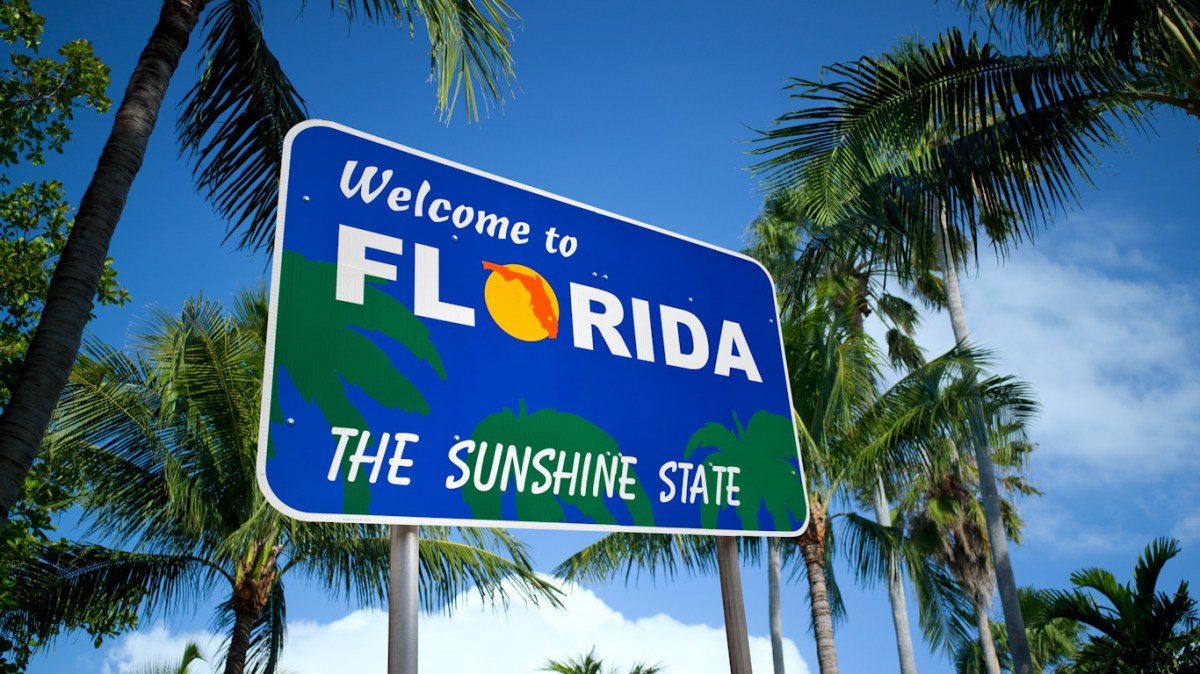Gay marriage has been legal throughout the USA for just under a decade now, but that doesn’t mean the whole country is on board. The Supreme Court struck down any state bans on same-sex marriages from sea to shining sea back in 2015, and though 71% of Americans back the practice as of 2022, a few states are really dragging their feet.
Leading the hateful bigot pack is none other than Florida. Well known for its outlandish “Florida Man” headlines, the state has pushed for archaic anti-LGBTQIA+ laws since the current Governor and a good argument for Florida’s rapid descent to the bottom of the ocean, Ron DeSantis, launched an all-out attack in 2022.
Is same-sex marriage legal in Florida?
As of 2015, gay marriage is legal all across the US of A. Then-president Barack Obama had been pushing towards marriage equality on and off since he first ran for Illinois senate in 1996. Per the Guardian, Obama’s Christian background caused him to struggle with his support for same-sex relationships until 2012 – just a few days after then Vice President Joe Biden offered his support to the idea.
Despite the Supreme Court’s overarching decision to give all Americans the right to marry whom they wish, there are still some curious remnants of a world not so long gone. Several states enshrined marriage within their constitutions, and one of them was Florida. Section 27 of the State Constitution defines marriage as “The legal union of only one man and one woman as husband and wife, no other legal union that is treated as marriage or the substantial equivalent thereof shall be valid or recognized.”
The amendment was filed in 2005 and adopted in 2008. Since the court passed down the decision, Florida state legislators have consistently pushed to remove it from the law. While they have yet to be successful, Federal Law supersedes that of individual states, meaning the words mean very little. And, in spite of Ron DeSantis’s best efforts, there doesn’t appear to be a quick overturn of that right on the horizon.
Recent years have seen a resurgence of anti-gay language in the state as DeSantis pushes fringe ideologies. In 2022 alone, his administration pushed 6 expressly anti LGBTQ+ bills into law – more than the previous 7 years combined.
HB 1521 marked the first of several extreme bans on gender-affirming care. SB 1590 took it a step further, allowing healthcare providers to deny a patient care based on the practitioner’s morals, ethical beliefs, or religion. Additionally, SB 170 allows Florida businesses to contest city non-discrimination ordinances that they felt could, “Impact their profits.”
SB 254 forbade transgender individuals from using bathrooms that aligned with their pronouns.
HB 1069 forbids educators from teaching anything about sexual orientation or gender identity to students ranging from Pre-K to 8th grade. This was later expanded in 2023 to include all grades, effectively removing any mention of the LGBTQIA community from Florida schools. Alabama, Iowa, Kentucky, Indiana, and North Carolina quickly followed the state’s blueprint to pass similar laws.
The bill called into question what was and wasn’t permissible in the classroom. Teachers feared repercussions from sharing stories about their same-sex partners, or simply displaying photos in classrooms. Books mentioning gender identity, or same-sex couples, were excised from schools. The effect was chilling, and teachers across the state took to social media platforms to decry the bills.
Civil rights attorneys in Florida were quick to challenge state law, and after settling out of court, the state clarified the “Don’t Say Gay” bills in February 2024. The state cannot prohibit the discussion of LGBTQIA+ persons, prevent anti-bullying rules centered on sexual orientation or gender identity, and can’t disallow gay-straight alliance groups. Most importantly it clarifies that the bill cannot apply to literature that doesn’t pertain to class coursework – a major win to the opponents of library censorship.

